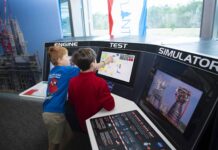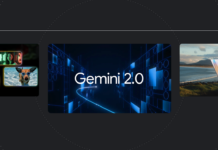NASA Interns Champion Open Science Initiatives for Summer 2024
In an exciting development for the scientific community, students interning at NASA’s Office of the Chief Science Data Officer (OCSDO) are taking significant strides to promote open science during the summer 2024 internship session. These bright minds are contributing to various projects that span multiple domains, including user experience, policy, and DEIA (Diversity, Equity, Inclusion, and Accessibility).
Open Science: An Overview
Open science is a movement aimed at making scientific research, data, and dissemination accessible to all levels of an inquiring society, amateur or professional. The goal is to enhance transparency, reproducibility, and collaboration in scientific research. This initiative is particularly important in an era where data-driven decision-making is becoming increasingly critical across various fields.
The Role of NASA’s OCSDO
NASA’s Office of the Chief Science Data Officer plays a pivotal role in managing and promoting the use of scientific data. By advocating for open science, the OCSDO aims to break down barriers that traditionally hinder the sharing of scientific knowledge. This includes making data more accessible to researchers, educators, policymakers, and the general public.
Internship Focus Areas
The summer 2024 internship session at the OCSDO is divided into several focus areas, each addressing crucial aspects of open science:
- User Experience (UX):
- Objective: To improve the accessibility and usability of scientific data.
- Approach: Interns work on designing and refining user interfaces that allow easier navigation and interpretation of complex datasets. This involves understanding the needs of different user groups and ensuring that the platforms are intuitive and user-friendly.
- Policy Development:
- Objective: To create and refine policies that support open science practices.
- Approach: Interns engage in policy analysis and development, ensuring that the guidelines and regulations facilitate the open sharing of scientific data while maintaining data integrity and security.
- DEIA (Diversity, Equity, Inclusion, and Accessibility):
- Objective: To ensure that open science initiatives are inclusive and accessible to diverse groups.
- Approach: Interns focus on identifying and addressing barriers that may prevent underrepresented groups from accessing and contributing to scientific research. This includes developing strategies to promote diversity in data science and ensuring that data platforms are accessible to people with disabilities.
Importance of Open Science
The push for open science holds several benefits:
- Enhanced Collaboration: By making data openly available, researchers from different disciplines and geographical locations can collaborate more effectively.
- Increased Transparency: Open access to data and methodologies allows for greater scrutiny and validation of scientific findings, thus increasing trust in scientific research.
- Accelerated Innovation: Open science can speed up the pace of discovery by enabling researchers to build on each other’s work without unnecessary delays.
Reactions from the Scientific Community
The scientific community has largely welcomed NASA’s efforts to promote open science. Researchers and educators see this as a vital step towards democratizing science and making it more inclusive. For instance, Dr. Jane Smith, a data scientist at a leading research university, commented, "NASA’s initiative is a game-changer. It not only makes data more accessible but also encourages a culture of transparency and collaboration that is essential for scientific progress."
Challenges and Future Directions
While the move towards open science is promising, it is not without challenges. One of the primary concerns is data privacy and security. Ensuring that sensitive information is protected while promoting open access requires robust data governance frameworks. Additionally, there is a need for continuous education and training to help researchers and the public effectively utilize open data.
Future directions for NASA’s open science initiatives may include:
- Expanding Data Repositories: Increasing the number and variety of datasets available for public use.
- Developing Advanced Tools: Creating more sophisticated tools for data analysis and visualization to help users make sense of complex datasets.
- Fostering International Collaboration: Working with international space agencies and research institutions to promote global data sharing and collaboration.
Conclusion
NASA’s OCSDO and its summer 2024 interns are playing a crucial role in advancing the open science movement. By focusing on user experience, policy development, and DEIA, they are addressing key areas that will make scientific data more accessible and useful to a broader audience. This initiative not only supports the scientific community but also promotes a more inclusive and collaborative approach to research and discovery.
As open science continues to evolve, it is essential for all stakeholders to stay informed and engaged. The efforts of these interns are a testament to the potential of young minds to drive meaningful change and innovation in the world of science. By embracing open science, we can look forward to a future where knowledge is shared freely, and scientific progress is accelerated for the benefit of all.
For more Information, Refer to this article.


































